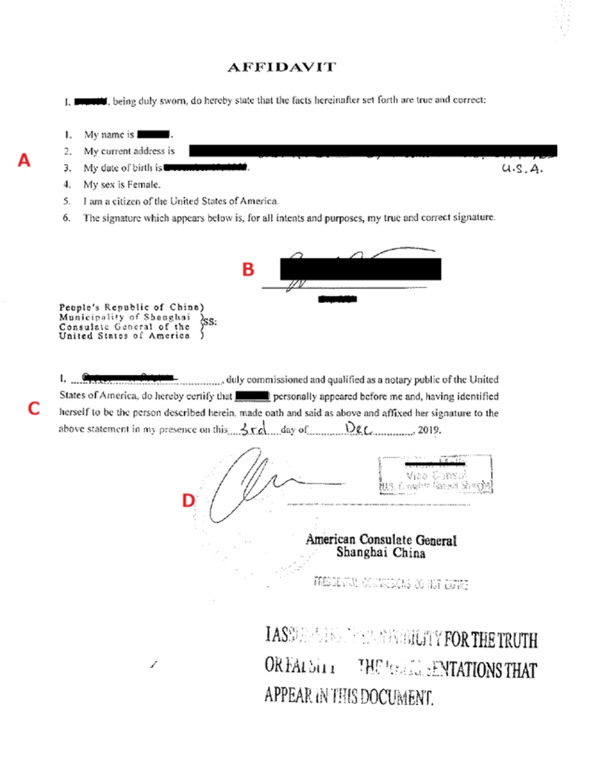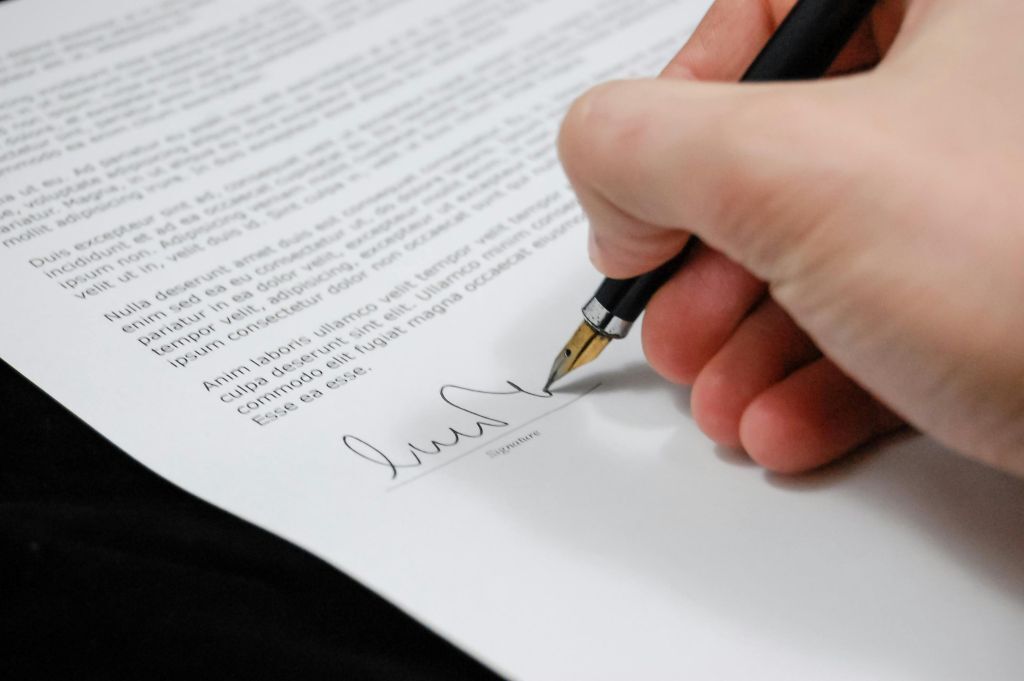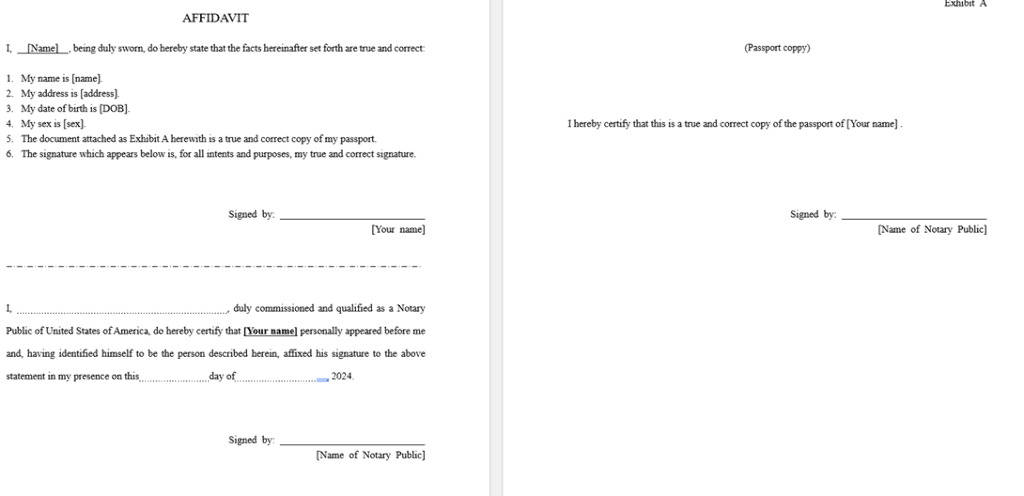2025 07/31
How to Obtain an Affidavit for Buying Property in Japan: A Guide for Foreigners

Non-residents in Japan must submit an affidavit when purchasing property. An affidavit is a legal document that is utilized instead of a certificate of residence or a seal registration certificate; the person who creates it swears that the contents are valid and signs it.
A signature certificate is similar to an affidavit, but it is a document for verifying a person's signature. If you are considering purchasing property in Japan, it is wise to prepare an affidavit early on. This article explains the contents of an affidavit, the procedure for obtaining one, and points to note.
H1: The Role of Affidavits
People or companies purchasing property in Japan must complete real estate registration. Real estate registration is an administrative procedure whereby the details of land and buildings (such as location and area) and their legal rights (such as ownership) are recorded in a register maintained by the Legal Affairs Bureau (the record will be made publicly available).
Regardless of nationality, residents in Japan have a certificate of residence and a seal registration certificate. A seal registration certificate verifies that a seal officially belongs to you, and a seal is a personal stamp used in place of a handwritten signature to officially authorise or certify documents. Whilst signatures are commonly used in foreign countries, seals are generally preferred in Japan; foreigners may create their own seal using katakana or romaji.
Furthermore, even if a foreigner provides a residence certificate issued by their own government, verifying its authenticity can be challenging. If a foreigner does not have either a certificate of residence or a seal registration certificate, they cannot complete property transactions in Japan. In such cases, an affidavit may be used as an alternative. In real estate registration, an affidavit confirms that a signature belongs to the individual and verifies their name and address. Unlike a seal registration certificate, an affidavit does not have an expiration date in the registration process.

H2: Who Prepares an Affidavit?
1. Information to include in an affidavit
An affidavit has a specific format containing detailed descriptions of facts the affiant (a person who makes and swears an affidavit) believes true. Below is a sample affidavit.

A: Affiant’s personal information
-The affiant's name (Write in order of First Name, Middle Name, and Last Name)
-The affiant's address
-The affiant's date of birth,
-The affiant's sex
-The affiant's nationality
B: The affiant's signature
C: A declaration that the facts are true
D: A notary public signature
When a foreign company buys or sells real estate in Japan, they create an affidavit that includes the company representative's name, the company's name, and the address of the head office (if it has been registered with a different address before, write the address/addresses as well).
2. Can I prepare the affidavit myself?
Generally, you prepare the affidavit yourself. In that case, you must use the right style, format, and factual words. However, you can also ask a legal professional to write a draft of an affidavit. Whilst it is a small additional cost of 20,000-30,000 yen, it reduces the probability of potential errors such as incomplete paperwork or inaccurate information that may occur when preparing them yourself.
When submitting an affidavit to the Legal Affairs Bureau or other Japanese institutions, a Japanese translation must accompany the original document if it is written in a foreign language. The translator does not need to be a licensed professional; the applicant or their representative may provide the translation. However, using a bilingual translator proficient in both Japanese and English is recommended to reduce the risk of mistranslations.
H3: Timeline for Obtaining an Affidavit
You will be required to receive the original affidavit before or on the day of real estate signing. Although submission of the document upon signing is not mandatory, if the affidavit is not available on the settlement date, there is a risk that you cannot complete the transfer of ownership registration; this will result in penalties. It is recommended that an affidavit be obtained by the contract/signing date. Swearing an affidavit is typically completed on the same day; however, the time required to prepare it may vary by individual. For this reason, it is advisable to obtain the affidavit by the date of the real estate contract, not the final settlement date.

H4: Where is an Affidavit Procedure Conducted?
For non-residents, the affidavit should be made in your own county; moreover, the affidavit must be sworn in the presence of an authorized official. In your home country, this is typically done at a notary's or government office. If you stay in Japan, you must take the affidavit to your country's embassy or consulate there. The process varies by country, so you should research the specific requirements where you live.
The following is an overview of the procedure for preparing an affidavit.
1. Contact the certifying authority
Contact a notary public in your country (or the embassy/consulate in Japan if you temporarily stay in Japan) and inform them of your intention to prepare an affidavit. At this time, ask for the necessary documents, fees, and procedures for certification.
2. Making an affidavit
Make a plan for when to complete the affidavit. Also, prepare the necessary expenses for the affidavit.
Try to draft an affidavit using a particular style and wording. To make it easier, use an affidavit template. After writing the draft, check the content (including the title) to ensure it is correct. If you find it challenging to prepare the documents, HouseRep Tokyo can introduce English-speaking lawyer.
3. Make the affidavit at a notary office
You will swear that the contents of the affidavit are correct in front of a notary public. After the notary public confirms the statement is true, you will sign the declaration, and then the notary public will certify your signature.
4. Purchase a property & Register your ownership
Once the affidavit has been prepared, you can apply for real estate registration in Japan upon your property purchase. The application is submitted to the Legal Affairs Bureau, which has jurisdiction over the property's location.
The original affidavit must be attached to the registration. You must submit a Japanese translation if written in a foreign language.

H5: Points to Note When Preparing an Affidavit
1. Try to swear statements yourself
The person concerned swears an affidavit; alternatively, a lawyer can also make affidavits on behalf of their clients before a notary public. However, some countries do not allow representatives, so it is necessary to check beforehand.
2. Changes to the handling of affidavits from 1 April 2024 in Japan
Affidavits were used as a substitute for legal documents such as a certificate of residence and company certificates as proof of address required for real estate registration applications. However, from 1 April 2024, affidavits and passports will be required as address verification.
See at: https://www.moj.go.jp/MINJI/minji05_00574.html.
Sample of an affidavit:

If you do not have a passport, you may use an identity document issued by your home government as an alternative (please inquire, as circumstances vary by country).
For corporations, it is necessary to submit an affidavit and a copy of a document issued by the country's government where the foreign corporation was established, including the name of the foreign corporation.
3. Consult a professional whenever possible
If there are any deficiencies or errors in the documents, the affidavit may not be accepted, and you may have to prepare it again. If you provide incorrect information in real estate registration application, your application may be rejected.
There is an elevated risk of making mistakes if you rely on your judgment. To ensure that your real estate registration application is completed smoothly, it is safest to entrust the process to a professional.
4. Choose a professional who is knowledgeable about an affidavit for foreigners
Affidavits have multiple uses; when requesting the services of an expert, it is appropriate to request the services of a lawyer knowledgeable about real estate. If you wish to make an affidavit in Japan, you should ask a judicial scrivener. A judicial scrivener is a professional who prepares legal documents such as affidavits and real estate registration applications. However, not all judicial scriveners are well-versed in real estate and speaking English. To avoid future problems, choose a judicial scrivener specializing in preparing affidavits and real estate registration documents. It is also preferable to select someone with experience dealing with foreigners.

Conclusion
This article explains the basics of affidavits, including how to prepare them. An affidavit is required when purchasing real estate in Japan. It is essential to prepare them accurately to ensure a smooth purchase process.
When purchasing property, you must just appoint a tax administrator which whoever can be. A tax administrator is primarily responsible for annual tax payment. When buying property, the buyer must pay real estate acquisition and fixed asset tax. To handle these procedures within Japan, a tax administrator is appointed; they may also be able to provide a contact address in Japan.
In addition, professionals such as tax accountants, property management companies, or acquaintances (who must reside in Japan) can serve as tax administrators. HouseRep Tokyo can also be appointed as a tax administrator and support you with the real estate purchase. Please feel free to consult us.
Reference Links:
https://www.moj.go.jp/MINJI/minji05_00589.html
https://s-legalestate.com/kaigai/registration/real-estate-registration/
https://s-legalestate.com/kaigai/registration/for-foreigners-and-overseas-residents/
https://s-legalestate.com/foreigners-real-estate-registration-amendment#i-13
https://www.moj.go.jp/MINJI/minji05_00574.html
https://ishiioffice.com/2025-03-19/
https://askpro.co.jp/fudousan/gaikokujin-ga-baikyaku/
https://www.freee.co.jp/kb/kb-contract/seal-registration-certificate/